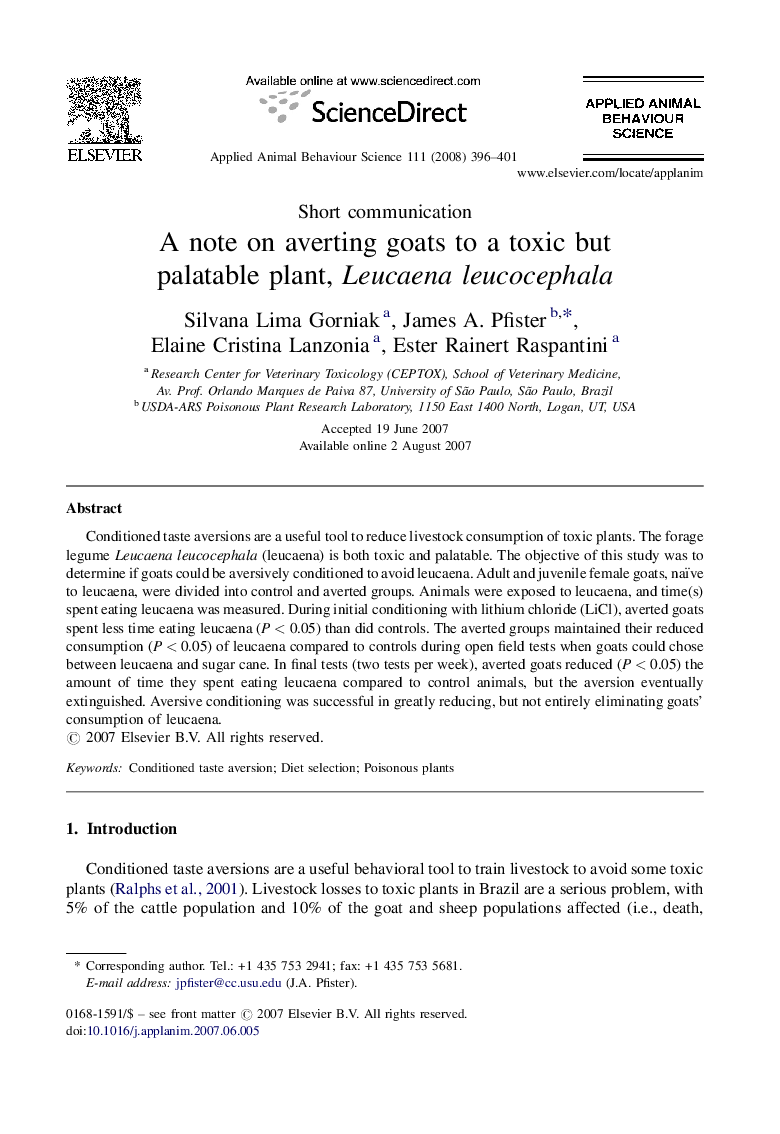| Article ID | Journal | Published Year | Pages | File Type |
|---|---|---|---|---|
| 4523776 | Applied Animal Behaviour Science | 2008 | 6 Pages |
Abstract
Conditioned taste aversions are a useful tool to reduce livestock consumption of toxic plants. The forage legume Leucaena leucocephala (leucaena) is both toxic and palatable. The objective of this study was to determine if goats could be aversively conditioned to avoid leucaena. Adult and juvenile female goats, naïve to leucaena, were divided into control and averted groups. Animals were exposed to leucaena, and time(s) spent eating leucaena was measured. During initial conditioning with lithium chloride (LiCl), averted goats spent less time eating leucaena (PÂ <Â 0.05) than did controls. The averted groups maintained their reduced consumption (PÂ <Â 0.05) of leucaena compared to controls during open field tests when goats could chose between leucaena and sugar cane. In final tests (two tests per week), averted goats reduced (PÂ <Â 0.05) the amount of time they spent eating leucaena compared to control animals, but the aversion eventually extinguished. Aversive conditioning was successful in greatly reducing, but not entirely eliminating goats' consumption of leucaena.
Related Topics
Life Sciences
Agricultural and Biological Sciences
Animal Science and Zoology
Authors
Silvana Lima Gorniak, James A. Pfister, Elaine Cristina Lanzonia, Ester Rainert Raspantini,
